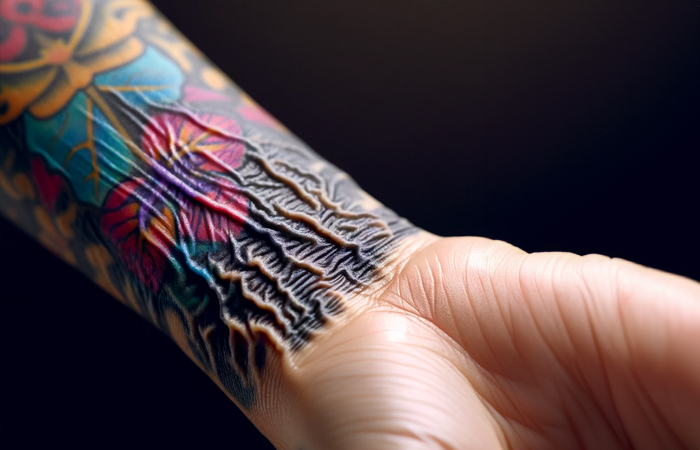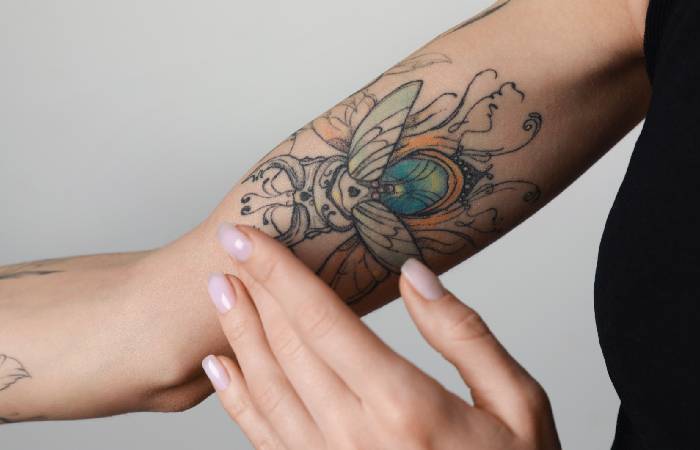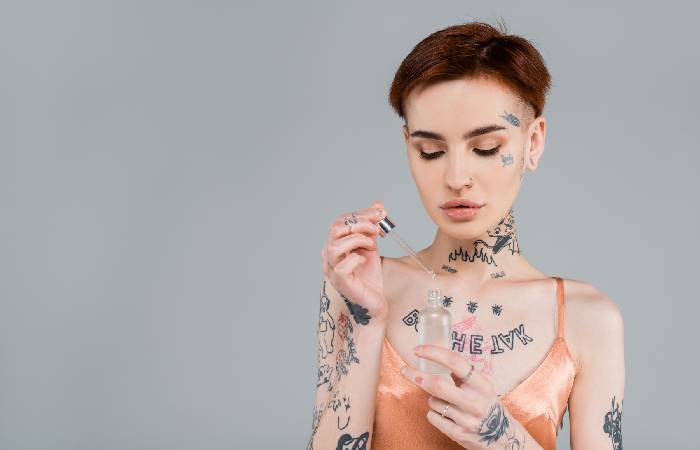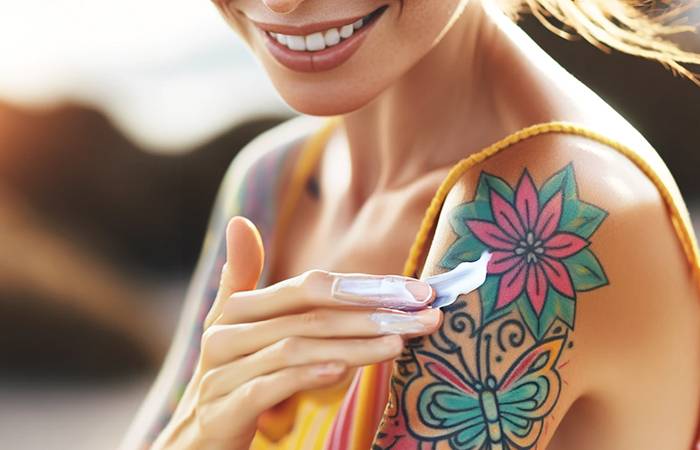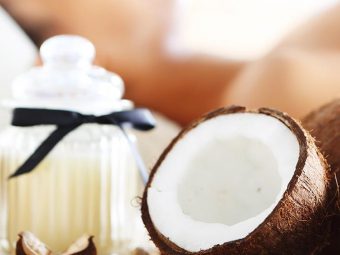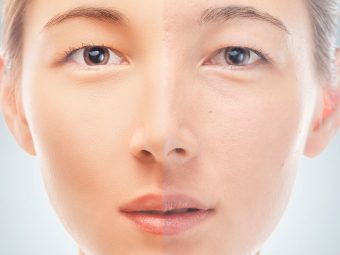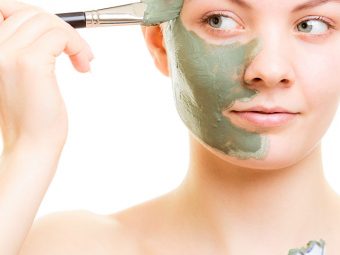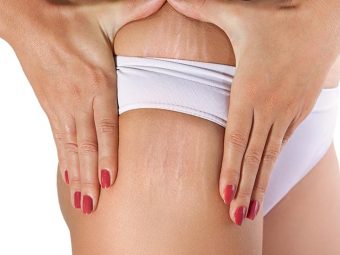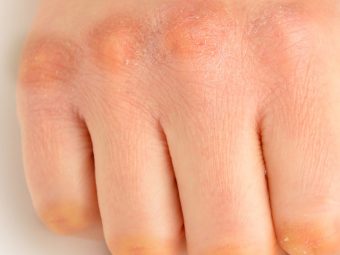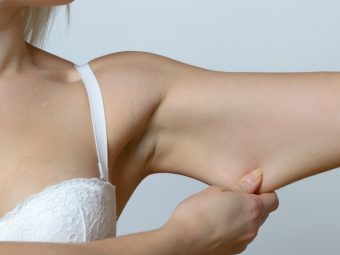My Tattoo Looks Wrinkly: Causes And How To Prevent It
Explore why fresh tattoos appear creased and proper aftercare tips to keep them vibrant.
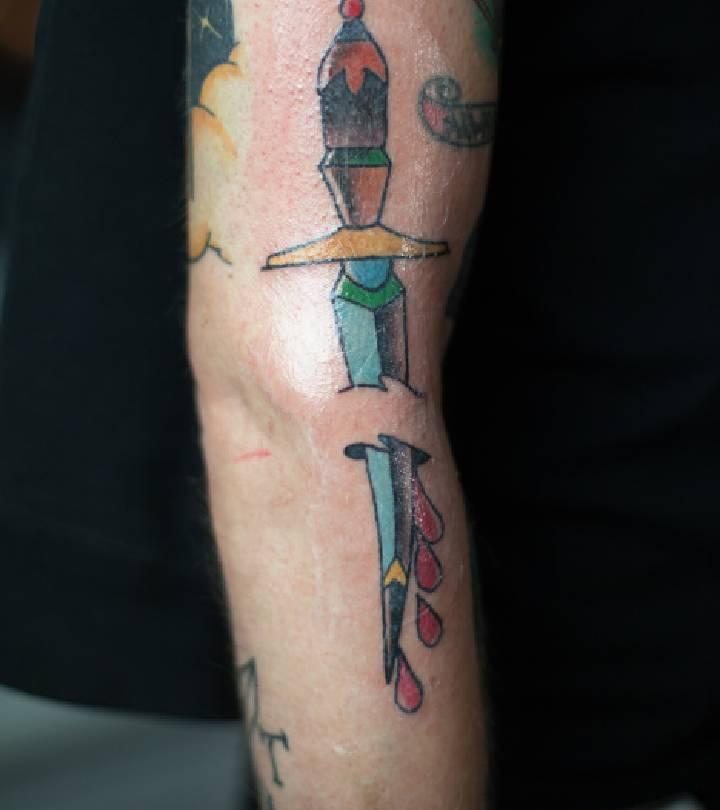
Image: Shutterstock
If your brand-new tattoo looks wrinkly within a few days of getting inked, naturally your first reaction will be nothing but concern. But wait, you need not be frantic. Surprisingly, this wrinkly appearance is part of the tattoo’s healing process. There are various factors contributing to this temporary wrinkling, such as the skin’s regeneration speed and the different healing stages it goes through as well as individual skin characteristics. Well then, how long does this temporary condition last? Can you prevent this wrinkled appearance entirely? These are some common follow-up questions that may occupy your thoughts following this unexpected appearance. This is where we can help you out.
This article discusses these questions, and offers prevention tips as well as treatment options to help you navigate this condition. Keep reading to know more!
In This Article
Why Does My Tattoo Look Wrinkly?
During the tattooing process, the tattoo needle pierces your skin many times at high intensity to deposit ink, causing an open wound on your skin. After this, when it starts to heal, your body sheds the damaged skin and replaces it with new tissue over a couple of weeks. But after the tattooing process, how it heals is up to you and your body’s individual response. In the first few days, it may bleed, ooze, and then start to dry up. After that, you may experience a few skin reactions like itching, scabbing, and peeling, which are all totally normal. However, some tattoos also start looking wrinkly during this phase.
So what exactly causes your tattoo to look wrinkly? Below are a few reasons:
- Your Tattoo Is Naturally Healing
When the skin regenerates after the tattooing, it naturally does not match the surrounding “normal” skin, and may appear uneven. This newly formed skin will feel delicate, soft, and sensitive. This process of the new skin formation is what creates the wrinkled appearance of your tattoo, which seems and feels different from the initially smooth surface right after getting inked. New tattoos need weeks, sometimes months, to heal completely. Over time, this wrinkled look should fade away if you carefully follow the tattoo artist’s guidance for aftercare.
- Your Skin Is Dehydrated
Hydration from within and moisturization of the skin are both immensely important to keep the tattooed skin healthy and speed up the healing process. However, too much or too little moisture can mess up the healing process. If the healing tattoo is too dry or too wet, it might cause excessive scabbing or prevent scab formation altogether or cause tattoo bubbling. No scabs can result in your tattoo looking wrinkly as it means your healing skin is lacking moisture. Apply a thin layer of unscented moisturizer over your tattoo after each wash and keep your skin hydrated with appropriate water intake.
- Your Skin Is Taking Longer To Heal
The healing process of a tattoo also depends on the individual, as some skin types may take longer to heal than others. Hence, the wrinkled and shiny look of a fresh tattoo might stick around for a while, especially on certain body parts that are dry or prone to creasing. In such cases, the area might stay wrinkled for 3 to 4 weeks after getting inked.
 Did You Know?
Did You Know?- You Are Overdoing Strenuous Activities
Intense exercises or physical activities may make your tattoo look wrinkled because they put a lot of stress on the healing skin. The skin struggles to keep up with the movement while healing, making the tattoo seem wrinkly. Exercising too hard may cause the tattooed area to crack, giving it the appearance of wrinkles.
- Your Nutritional Intake Is Inadequate
If your tattoo looks wrinkly, it might be because your body is missing out on good nutrition. Eating healthy by including food items such as fruits, vegetables, and good fats may help your skin heal better (1). If you overindulge in processed foods or too much sugar, it can make your skin inflamed and age faster, making your tattoo look wrinkled (2).
Taking proper care of your tattooed skin can help fade the wrinkled appearance, eventually improving the skin and healing process. But how long does this last? Read on to find.
How Long Will The Wrinkles Last?
Generally, a fresh tattoo may take around two months to fully heal. Throughout this healing phase, it goes through various stages like flaking, scabbing, peeling, and wrinkling, each lasting a few days to a week. Though the healing period varies from person to person, depending on the type of skin as well as the tattoo location, size, and aftercare practices, the wrinkly appearance may fade in about a week. Usually, after 2.5 to 3 months, your tattoo should look completely fine.
Taking good care of the healing tattoo speeds up healing, so stick to the aftercare advice your tattoo artist gives you to improve the appearance of the wrinkly tattoos. Scroll down for a few tips on how to look after that wrinkled skin tattoo.
How To Treat A Wrinkled Tattoo
A wrinkled tattoo needs moisturization and hydration to improve its appearance. Here are some tips that may help keep your tattoo looking perfect.
- Clean your tattooed skin with lukewarm water and antibacterial soap, preferably a pH-neutral product. Ensure you keep your skin clean and sweat-free to speed up the healing time.
- Always pat it dry gently with a soft paper towel.
- Apply a thin layer of moisturizer at least twice a day, or as recommended by your tattoo artist. Opt for unscented lotions and specialized products for tattoo aftercare.
- Wear light, loose-fitting clothes to prevent them from causing friction and sticking to the tattoo as it heals.
- You may use a retinoid cream or a serum to improve collagen production to help reduce wrinkles and improve skin condition (3). Use it twice a day, but only after consulting your professional tattoo artist.
- You may also massage the area around the tattooed skin to improve circulation and for keeping your skin healthy.
 Pro Tip
Pro TipThese aftercare practices may help speed up the fading of wrinkles. However, you can also try to prevent this wrinkly appearance from the get go, if you start practicing the aftercare instructions soon after the tattooing process. Read on to find out how.
How To Keep Tattoos From Getting Wrinkled
There are a few ways to help prevent the tattooed area from appearing wrinkly, and some of these prevention tips include the following:
- Ensure you do not wash a fresh tattoo in the first 24 hours following the tattoo session.
- Clean with a mild soap only if the oozing and bleeding are uncontrollable, but make sure you do not submerge the tattoo in water.
- Apply lotions or moisturizers only after the first 24-48 hours.
- Avoid using petroleum-based products that may cause clogging and result in a tattoo infection.
- Avoid scratching, peeling, or touching the tattoo while it is in the healing stage and scabbing.
- Keep your skin protected from direct exposure to sunlight and pollution, and apply sunscreen whenever you go out.
- Stay away from swimming in pools, jetted bathtubs, or hot tubs till the tattoo is completely healed.
- Stay away from hard physical work and steer clear of activities that make you sweat a lot that can introduce bacteria to the wound or irritate it, affecting the optimal healing of the tattoo.
If your tattooed area still looks wrinkled, itchy, swollen, or has red edges after about five weeks, it might be an unusual skin reaction to the tattoo ink or a sign of tattoo infection. It is best to see a medical professional immediately for the right treatment.
If your tattoo looks wrinkly, it might make you wonder why, and how long it will last. Getting inked means your skin goes through trauma, which needs to be followed by a healing journey. Hence, this wrinkled appearance comes from the new skin forming after your tattooing. Though it may fade away soon, various factors can affect how long your tattoo stays wrinkled, such as lack of or over hydration, the speed of the healing process, too much sweating, or intense workouts which stress the healing skin. Taking good care of your fresh ink may help improve this wrinkly appearance, which includes following your tattoo artist’s advice to speed up healing. However, if your tattoo still looks odd after five weeks, causes irritation and also becomes painful, it may be an allergic reaction to the tattoo ink, and it is recommended to see a doctor for the right treatment.
Frequently Asked Questions
Should a new tattoo look wrinkled?
The new tattoo may or may not look wrinkled. However, it is normal and natural for the tattoo to look wrinkled during the healing stage.
Can tattoos cover up wrinkles?
No. Tattoos are placed in the middle layers of skin, and are not deep enough to change the appearance of wrinkles. While tattoos can draw attention away from wrinkles, they do not physically change the skin’s appearance beyond the aesthetic or smooth out wrinkles.
Key Takeaways
- Wrinkling in a tattoo happens during the skin’s healing phase when new tissue replaces the damaged skin.
- Skin type, hydration, straining, delicate skin areas, intense activities, and diet may affect how long a tattoo may stay wrinkled.
- Tattoos take about two months to fully heal, going through many healing stages like flaking and wrinkling.
- Good aftercare, like moisturizing and sun protection, may help wrinkles fade faster and speed-up the tattoo healing process.
A wrinkled tattoo is part of its healing stage and will smoothen over time. However, not knowing the different stages of the healing period may lead to mistakes in tattoo aftercare. Watch this video to help prevent a wrinkled appearance.
Sources
Articles on StyleCraze are backed by verified information from peer-reviewed and academic research papers, reputed organizations, research institutions, and medical associations to ensure accuracy and relevance. Read our editorial policy to learn more.
- The role of nutrition in wound healing: An overview
https://www.britishjournalofnursing.com/content/nutrition/the-role-of-nutrition-in-wound-healing-an-overview/ - Diet and skin aging—from the perspective of food nutrition
https://www.mdpi.com/2072-6643/12/3/870 - Retinoids: Active molecules influencing skin structure formation in cosmetic and dermatological treatments
https://pubmed.ncbi.nlm.nih.gov/31616211/




